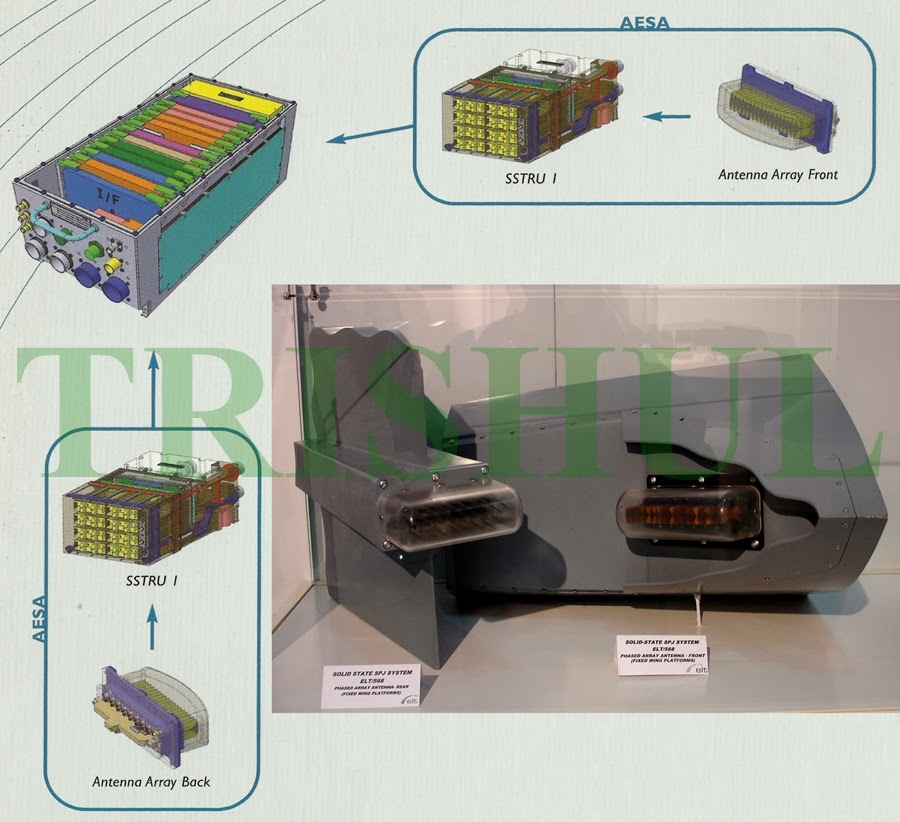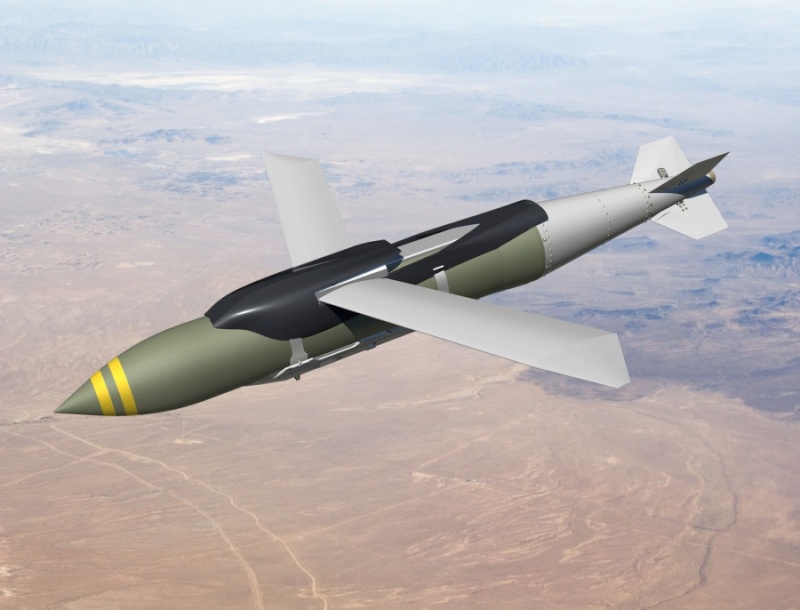The SC
ELITE MEMBER

- Joined
- Feb 13, 2012
- Messages
- 32,233
- Reaction score
- 21
- Country
- Location
These are some electronic components and weapons, or their equivalents to make the JF-17 a top class fighter in its category:
- GaN technology in AESA; This substance has a higher percentage in the consumption of voltages with a carrying capacity of the largest heat and the amount of broadcast much bigger than GaAs power GaAs Arsnyd

- European AESA radar VIXEN 1000E with 1000 modules with a range of 300 km; features an innovative roll-repositionable AESA antenna to provide a full ±100º field of regard allowing maximum situational awareness and platform survivability.


- QWIP detectors in the electro-optical components for IRST and missile seekers;

For this we have the French OSF with a 110 km range and the Italian Skyward-G which has no less than 75 km range..since they both use QWIP technology which can be integrated to the pilot's helmet display.. and missile seekers..

The French system is better, but very expansive , so the choice goes to the Italian made for export IRST (or equivalent) Skyward-G..
- Self-protection jammer; The ELT/568(V)2 is a solid-state self-protection jammer intended to neutralize radar-based air defense systems and radar-guided surface-to-air and air-to-air missiles..Besides, the ELT/568(V)2 provides jamming against air surveillance radar systems. The jammer has been developed by Elettronica S.p.A. and has been designed for installation on fighter aircraft.
During flight operation, ELT/568 detects radar signals and transmits jamming signals according to the RWR designation with which it is integrated or, in “Stand Alone” mode, can operate independently, according to library loaded before the mission. A series of communication channel (BUS 1553) and lines for discrete signals are designed to manage compatibility / integration with other on-board RX and TX devices.
It based on the numeric memory DRFM, the same technology used by the French SPECTRA..

- RWR (Radar Warning Receiver); French made Cats-150.. from Thales; The CATS-150 is the latest generation radar-warning receiver developed by Thales. Pilots are alerted to threats on screen in time to re-route and avoid high-risk areas, thereby enhancing security and survivability. The system also provides a complete self-protection management function using detectors and warning receivers.

Main Features
• Instantaneous 100% POI Radar Warning
• High sensitivity receiver
• Automatic instantaneous identification
• Fully user programmable library
• User-friendly MMI on colour display and NVG compatible
• Extensive on board data recording
• SPS processing (Radar, Laser, Missile Warning,
Chaff & Flare Dispenser, Jammer) and optimisation
of counter measures employment
• Compatible with off-board transmission to other
platforms and multi-platform cooperation
• Comprehensive set of mission planning, training
and support tools
• On board training
• Minimal life cycle cost maintenance concept: BIT,
standard boards, modular architecture
• Powerful COTS processing with growth potential
• Digital receiver (optional)
• Large interface capabilities
Technical characteristics
• Frequency range E-K band (C-D band optional)
• Coverage 360° Azimuth +/- 45° Elevation
• DF accuracy better than 10°
• Library > 5,000 modes
• Size (processing unit) 194 x 157 x 318 (ARINC 600, 5MCU)
• Weight (w/o display) < 10 kg
• Power (w/o display) < 125 W (28 V DC)
• MTBF > 700 H
- Directional Infrared Counter Measures (DIRCM);
The system uses an active method of jamming of infrared missiles seekers through the sensor aperture. The system can be placed in either active or standby mode. In the standby mode the aircrew must select the active mode to begin jamming IR threats.The pulsing flashes of IR energy confuse the missile guidance system. The Italian made ELT/572 is very efficient and low priced..
The most reliable and effective approach to countering the evolving threat of MANPADS is represented by the use of Directional Infrared Countermeasures (DIRCM).The fibre laser technology, applied in the ELT/572, enhances DIRCM effectiveness by improving performances, effectiveness, reliability and efficiency, while it overcomes the traditional setbacks of previous DIRCM suites, by reducing the installation constraints and the even more critical and complex setting-up, alignment and maintenance operations. It also allows the use of a small, highly dynamic turret that can very quickly slew and, driven by sophisticated algorithms, accurately concentrate the laser beam on the seekers of the incoming missile threats, ensuring an all-around effective protection of the platforms even against multiple simultaneous threats.

- GaN technology in AESA; This substance has a higher percentage in the consumption of voltages with a carrying capacity of the largest heat and the amount of broadcast much bigger than GaAs power GaAs Arsnyd

- European AESA radar VIXEN 1000E with 1000 modules with a range of 300 km; features an innovative roll-repositionable AESA antenna to provide a full ±100º field of regard allowing maximum situational awareness and platform survivability.


- QWIP detectors in the electro-optical components for IRST and missile seekers;

For this we have the French OSF with a 110 km range and the Italian Skyward-G which has no less than 75 km range..since they both use QWIP technology which can be integrated to the pilot's helmet display.. and missile seekers..
The French system is better, but very expansive , so the choice goes to the Italian made for export IRST (or equivalent) Skyward-G..
- Self-protection jammer; The ELT/568(V)2 is a solid-state self-protection jammer intended to neutralize radar-based air defense systems and radar-guided surface-to-air and air-to-air missiles..Besides, the ELT/568(V)2 provides jamming against air surveillance radar systems. The jammer has been developed by Elettronica S.p.A. and has been designed for installation on fighter aircraft.
During flight operation, ELT/568 detects radar signals and transmits jamming signals according to the RWR designation with which it is integrated or, in “Stand Alone” mode, can operate independently, according to library loaded before the mission. A series of communication channel (BUS 1553) and lines for discrete signals are designed to manage compatibility / integration with other on-board RX and TX devices.
It based on the numeric memory DRFM, the same technology used by the French SPECTRA..

- RWR (Radar Warning Receiver); French made Cats-150.. from Thales; The CATS-150 is the latest generation radar-warning receiver developed by Thales. Pilots are alerted to threats on screen in time to re-route and avoid high-risk areas, thereby enhancing security and survivability. The system also provides a complete self-protection management function using detectors and warning receivers.

Main Features
• Instantaneous 100% POI Radar Warning
• High sensitivity receiver
• Automatic instantaneous identification
• Fully user programmable library
• User-friendly MMI on colour display and NVG compatible
• Extensive on board data recording
• SPS processing (Radar, Laser, Missile Warning,
Chaff & Flare Dispenser, Jammer) and optimisation
of counter measures employment
• Compatible with off-board transmission to other
platforms and multi-platform cooperation
• Comprehensive set of mission planning, training
and support tools
• On board training
• Minimal life cycle cost maintenance concept: BIT,
standard boards, modular architecture
• Powerful COTS processing with growth potential
• Digital receiver (optional)
• Large interface capabilities
Technical characteristics
• Frequency range E-K band (C-D band optional)
• Coverage 360° Azimuth +/- 45° Elevation
• DF accuracy better than 10°
• Library > 5,000 modes
• Size (processing unit) 194 x 157 x 318 (ARINC 600, 5MCU)
• Weight (w/o display) < 10 kg
• Power (w/o display) < 125 W (28 V DC)
• MTBF > 700 H
- Directional Infrared Counter Measures (DIRCM);
The system uses an active method of jamming of infrared missiles seekers through the sensor aperture. The system can be placed in either active or standby mode. In the standby mode the aircrew must select the active mode to begin jamming IR threats.The pulsing flashes of IR energy confuse the missile guidance system. The Italian made ELT/572 is very efficient and low priced..
The most reliable and effective approach to countering the evolving threat of MANPADS is represented by the use of Directional Infrared Countermeasures (DIRCM).The fibre laser technology, applied in the ELT/572, enhances DIRCM effectiveness by improving performances, effectiveness, reliability and efficiency, while it overcomes the traditional setbacks of previous DIRCM suites, by reducing the installation constraints and the even more critical and complex setting-up, alignment and maintenance operations. It also allows the use of a small, highly dynamic turret that can very quickly slew and, driven by sophisticated algorithms, accurately concentrate the laser beam on the seekers of the incoming missile threats, ensuring an all-around effective protection of the platforms even against multiple simultaneous threats.

















